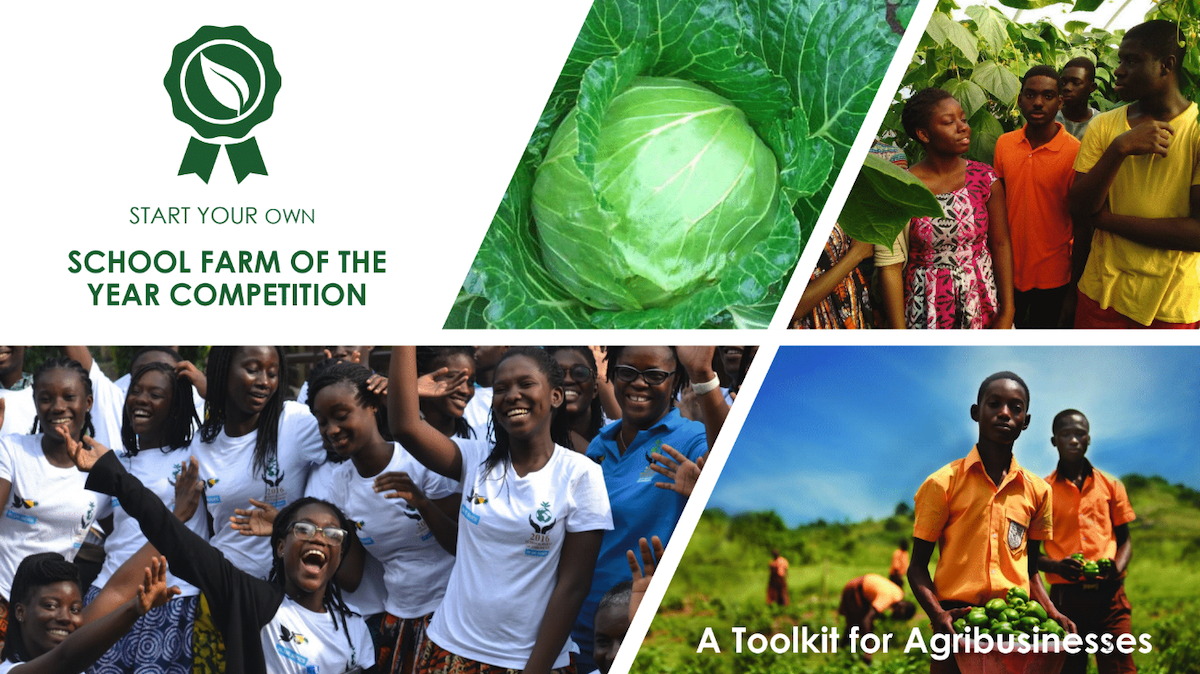In 2015, Blue Skies launched a School Farm of the Year competition in Ghana. It was launched in response to growing concern among Blue Skies farmers, that not enough young people were going in to agriculture. This raised the question of who would be the farmers of the future ?
Part of the problem was that young people were simply not interested in farming. With all the appeal of white collar jobs in the city, coupled with the association between farming and poverty, it was clear that agriculture was suffering from an image problem that was deterring the next generation of talent.
The aim of the School Farm Competition was therefore to help reverse this negative image by enabling schools to compete against each other to grow and manage their own school farms. Prizes were awarded to schools that produced the best farm in terms of how they engaged with students in farming to promote active learning, and develop a positive attitude about food and agriculture, the environment and entrepreneurialism.
This simple model has proven hugely popular and led to increasing interest among other organisations for the competition to be expanded to benefit more schools in other parts of the world.
The School Farm Competition however, is really only sustainable if it is managed and funded through a single organisation such as an agribusiness, and made available for local schools within their catchment area. This toolkit has therefore been developed to enable other companies to copy the Blue Skies example and introduce their own competition that will raise the profile of agriculture within their region.

